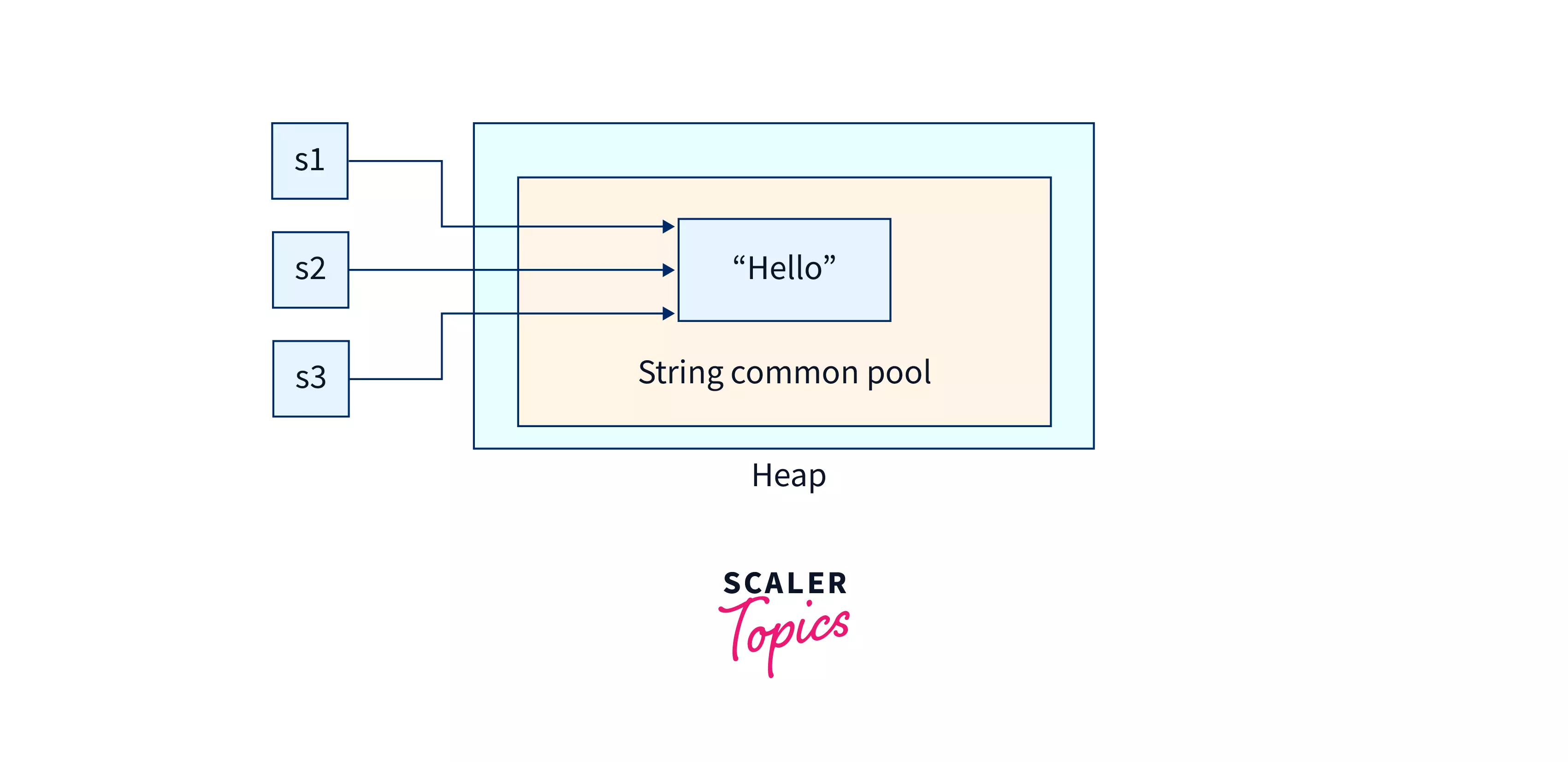Why Are Strings Immutable in Java? Insights into Memory Efficiency
Why Are Strings Immutable in Java? Insights into Memory Efficiency
Blog Article
What Is Unalterable Strings and Exactly How It Functions
In the realm of shows, recognizing the concept of unalterable strings is paramount for developing durable and protected applications. Immutable strings describe strings that can not be altered after they are produced, ensuring data stability and predictability within the code. This essential principle plays an important role in various programming languages and provides a special method to managing information. By exploring the details of just how immutable strings function, one can discover a globe of advantages and opportunities that can elevate the top quality and efficiency of software program growth.
The Basics of Unalterable Strings
Unalterable strings, as an essential concept in programs, are character series that can not be transformed when they are produced. This implies that when a string is assigned a worth, that value can not be altered. In languages like Python and Java, strings are immutable objects, causing various implications in regards to memory monitoring and data honesty.
One of the vital benefits of unalterable strings is that they provide a complacency in information adjustment. Considering that the web content of an unalterable string can not be changed, it guarantees that the original data remains undamaged, minimizing the risk of unexpected changes throughout program implementation (Why are strings immutable in Java?). This building also simplifies debugging processes, as developers can trust that once a string is specified, its worth will certainly not be unintentionally modified
When a brand-new string is produced based on an existing one, instead than changing the original string, the new worth is kept individually. Generally, recognizing the fundamentals of unalterable strings is crucial for understanding shows concepts and maximizing code effectiveness.
Benefits of Immutable Strings
Building upon the safety and effectiveness benefits of immutable strings, their benefits encompass boosting code reliability and streamlining concurrent programming tasks. By being unalterable, strings can not be changed after development, which removes the risk of unintended adjustments in the data they store. This integral immutability makes sure that once a string is developed, its worth continues to be consistent throughout the program's implementation, decreasing the possibilities of bugs brought on by unforeseen changes.
Furthermore, unalterable strings add to code dependability by making it much easier to reason about the state of a program. Given that strings can not be changed, programmers can trust that a string will certainly constantly hold the same worth, simplifying debugging and upkeep initiatives. This predictability causes much more steady and trustworthy codebases.

Application in Programs Languages
Within various shows languages, the consolidation of unalterable strings is a fundamental aspect that influences exactly how information is managed and manipulated within code frameworks. The implementation of immutable strings varies throughout various programming languages, with each language supplying its very own mechanisms to sustain this concept.

In contrast, languages like C and C++ do not have integrated assistance for unalterable strings. Developers in these languages have to manually implement immutability by imposing regulations within their code to avoid straight alterations to string objects.
Best Practices for Collaborating With Immutable Strings
When dealing with unalterable strings in programs languages like Java and Python, adhering to finest practices makes sure effective and protected data adjustment. Among the key finest practices is to use StringBuilder or StringBuffer instead of straight adjusting strings, particularly when dealing with considerable concatenation operations. These courses provide mutable options for string control, helping to prevent unneeded memory allocations and improving performance.
Furthermore, when functioning with delicate information such as passwords or API keys, it is important to stay clear of saving them as ordinary text in unalterable strings. Utilizing protected storage mechanisms like char arrays or specialized libraries for dealing with sensitive info helps mitigate protection threats linked with unalterable strings.
Real-world Applications and Instances
Exploring functional applications of immutable strings in numerous industries reveals their significant impact on data integrity and system reliability. In the medical care sector, unalterable strings play an essential duty in making sure the safety and confidentiality of patient information. By preventing unauthorized alterations to delicate details such as medical records and prescriptions, unalterable strings assist maintain compliance with strict privacy guidelines like HIPAA.
Banks likewise take advantage of the immutable nature of strings to improve the security of consumer data and transaction documents. Immutable strings aid prevent scams and unapproved changes to economic info, providing a robust protection versus cyber hazards and ensuring the trust fund and confidence of customers.

Verdict
To conclude, unalterable strings are dealt view with and stable series of personalities that use advantages such as string safety and enhanced efficiency in shows. They are carried out in numerous shows languages to guarantee information honesty and protection. Best methods for dealing with immutable strings consist of staying clear of direct modifications and using methods that return new string things. Real-world applications of unalterable strings consist of data encryption, caching, and string control jobs.
Unalterable strings refer to strings that can not be altered after they are created, making sure data honesty and predictability within the code. When a new string is produced based on an existing one, instead than modifying the initial string, the brand-new worth is kept separately.In languages like Java and Python, strings are immutable by default, implying that when a string item is produced, its value can not be changed - Why are strings immutable in Java?. Finest practices for functioning with immutable strings include avoiding straight modifications and using methods that return brand-new string objects. Real-world applications of unalterable strings consist of information encryption, caching, and string control tasks
Report this page